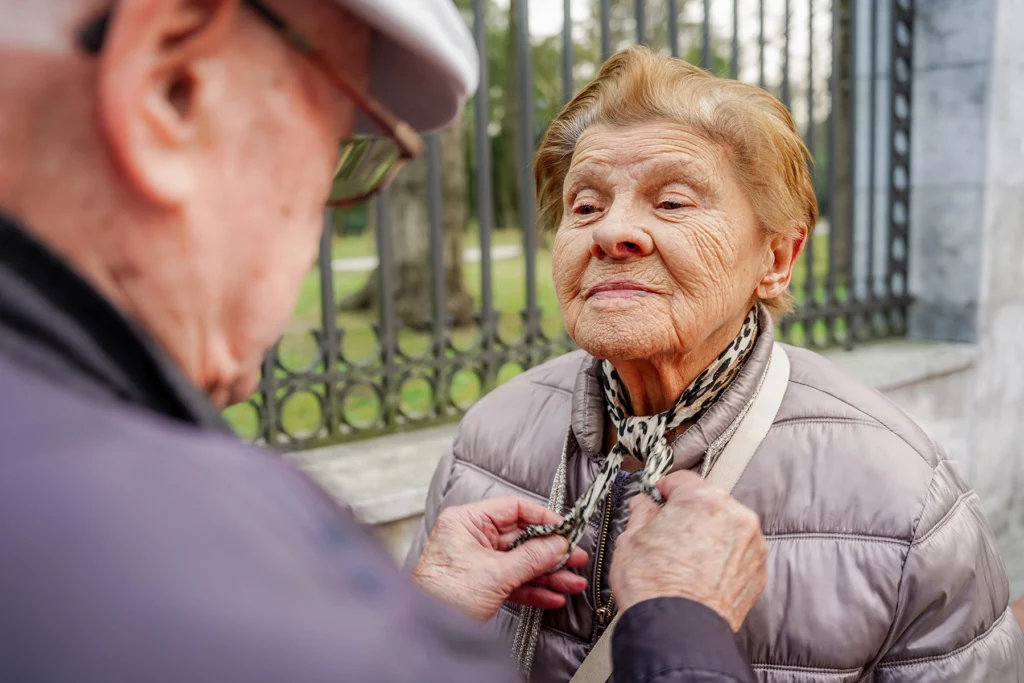With its warm climate, vibrant culture, and sizable expat communities, Spain has long been an appealing place to retire. But what can you expect in terms of medical care?
After pensions, this is the next significant concern for seniors abroad. Fortunately, Spain has a high-quality healthcare system and various health insurance options for its foreign population of retirees.
Read on to discover more about:
- Healthcare for seniors in Spain
- Health insurance for seniors in Spain
- Specialists and medical centers for seniors in Spain
- Hearing, vision, and dental care for seniors
- Cancer and cancer screenings for seniors in Spain
- Neurodegenerative diseases in Spain
- Mental healthcare services for seniors
- Rehabilitation and physical therapy
- Social care and long-term care in Spain
- Alternative and complementary care
- Healthcare apps for seniors in Spain
- Useful resources
Cigna Global
Are you 60+ and looking for private international health insurance? Speak to the healthcare professionals at Cigna Global today and find a policy that’s right for you. They have a global network of doctors, specialists, therapists, and more with tailor-made coverage for seniors. Before starting a new chapter of your life, get peace of mind with Cigna Global.
Healthcare for seniors in Spain
What is the current state of health of seniors in Spain?
The good news for anyone retiring in Spain is that many older adults enjoy high levels of good health, which may be partly due to the country’s quality healthcare system. Spain has one of the highest life expectancies in Europe at 83 years (2021), three years above the European Union (EU) average, including 72.1 years in good health.

According to Spain’s EU health profile (2021), there are fewer deaths from preventable diseases and lower levels of smoking, drinking alcohol, and poor diet than the EU averages. Furthermore, World Health Organization (WHO) statistics (2022) show lower rates of hypertension and fewer deaths from cardiovascular disease (CVD), cardiorespiratory disease (CRD), cancer, and diabetes than European averages. However, these still feature among the leading causes of death in Spain.
National statistics show that 41.4% of over-65s in Spain have difficulty with mobility, and 26.7% are experiencing cognitive decline (2020). Nearly one-third (31%) of over-65s in Spain are classed as dependent.
How can expat seniors access Spanish healthcare?
Spain’s healthcare system comprises public and private services open to expats. The tax-funded National Health System (Sistema Nacional de Salud, SNS), overseen by the Ministry of Health (Ministerio de Sanidad), provides healthcare to all those with a residence permit and is covered by the national health insurance scheme.
Additionally, internationals moving to Spain can purchase private health insurance, which gives them access to a broader range of private medical providers in Spain.
Health insurance for seniors in Spain
Public health insurance
Everyone living and working in Spain makes social security payments that include insurance for standard medical care for themselves and dependent family members. This means they can access public healthcare, which is mainly free.

If you are a senior in Spain who has been working and making contributions, you will have automatic entitlement to the SNS as a pensioner. However, if you are moving to Spain later in life and haven’t paid into the system, you can still access public healthcare by:
- Completing an S1 form if you are an EU or European Free Trade Association (EFTA) citizen, have paid social security, and receive a state pension in your home country. You can also access services if you are from a non-EU/EFTA country that has a mutual healthcare agreement with Spain and you have made sufficient contributions.
- Signing up for the special agreement (Convenio Especial), where you make a monthly payment to access state healthcare if you are not covered by any other means. This is run regionally by autonomous communities. In most regions, you need to have been living in Spain and registered on El padrón for at least one year.
Private health insurance
Private health insurance is popular with expat seniors in Spain as it covers a more comprehensive range of treatments. The SNS provides a wealth of healthcare; however, there are limitations.
Exclusions to public health insurance include:
- Dental treatment
- Mental healthcare beyond essential psychiatric services
- Some prescription costs (seniors usually have to pay 10% of the fees)
- Alternative and complementary healthcare
- Some specialist treatments and surgeries
Furthermore, you won’t get coverage for some medical care for pre-existing conditions as a senior in Spain (unless you pay into the Convenio Especial scheme). Private health insurance offers the chance to tailor plans to suit individual needs.

Additional benefits include:
- Greater choice over healthcare providers, for example, private doctors, specialists, and hospitals
- Faster treatment, as you can avoid waiting lists for public services
- Better range of English-speaking professionals (if you are not fluent in Spanish)
Costs depend on various factors, such as coverage level and personal health risks. However, you can generally expect to pay between €50 and 250 a month (Convenio Especial costs are just over €150 a month for over-65s). You can also check current prices on this comparison site (in Spanish).
International private health insurance for seniors
International providers, such as Cigna Global, offer health insurance plans specifically tailored to expats aged 60 and over living in Spain. These policies typically cover common illnesses, emergencies, and provide optional coverage for dental care, vision, and other specialized needs.
Unlike other options, international plans for seniors often have no upper age limits and may include coverage for certain long-term and pre-existing conditions. For expats who prefer quicker treatment, shorter waiting times, and access to English-speaking doctors, exploring international private health insurance could be a practical choice.
Specialists and medical centers for seniors in Spain
Spain has a highly developed system of geriatric care. There are 2,456 professional members of the Spanish Society of Geriatrics and Gerontology (Sociedad Española de Geriatría y Gerontología – SEGG), including 970 geriatricians. Specialists providing care to seniors in Spain include:
- Cardiologists
- Neurologists
- Oncologists
- Ophthalmologists
- Physiotherapists
- Rheumatologists
These specialists work in public and private settings, including general hospitals and specialist medical centers. Public health insurance covers most specialist care as long as it has a doctor referral. However, you can access a wider range of treatments without a referral if you take out private health insurance for seniors in Spain.

All medical professionals in Spain should be registered with the Consejo General de Colegios Oficiales de Médicos (CGCOM). You can search for specialists on their directory (in Spanish) or look for English-speaking professionals on ESHA Spain. Check the Ministry of Health for information on public hospitals and health centers, or search for private facilities on SaludOnNet (links in Spanish).
Vaccines for older adults in Spain
Spain has a national vaccine program for both children and adults. All residents aged 60 and above are eligible for annual influenza and COVID-19 jabs. The federal program also includes a tetanus booster jab at age 65.
You may need additional vaccines if you travel abroad to certain countries. If you want immunization against any conditions not on the national schedule, you can cover this with private insurance.
Hearing, vision, and dental care for seniors
Spain offers good quality dental, eye, and hearing care to its population, including specialist treatment from dentists, orthodontists, optometrists, ophthalmologists, and audiologists. However, there are limits to the provision available through public healthcare.
Dental care for all groups other than children under 15 is limited to emergency treatments on the SNS. This means that you’ll need private coverage for any dental treatment or equipment, for example, dentures, which can cost around €400–650. Fortunately, many health insurance policies for seniors in Spain – like Cigna Global – offer dental coverage to offset costs, and some dental providers also give discounts to over-65s.
You can get free eye and hearing tests if you’re registered for public healthcare in Spain, as well as specialist treatment through a referral. However, statutory insurance doesn’t cover prescriptions for spectacles, contact lenses, or hearing aids.
Costs for glasses and hearing aids vary considerably from around €50 to over €500 for designer brands or state-of-the-art equipment. Some suppliers offer discounts of about 10–15% to seniors. Again, your private insurance should cover these expenses.
Cancer and cancer screenings for seniors in Spain
Age-related cancers in Spain
Cancer is the second biggest cause of death in Spain after cardiovascular diseases.

According to national cancer statistics (2020), the most common forms of cancer are:
- Colorectal
- Prostate
- Breast
- Lung
- Bladder
If you add in pancreatic cancer, these make up the six cancers that cause the most deaths in Spain. All of these cancers are more likely to develop as you get older.
If you receive a cancer diagnosis in Spain, you can access free specialist treatment in public hospitals and medical centers if registered for state healthcare. You can also use private health insurance to access a broader range of specialist treatment in units such as Madrid’s reputed Anderson Cancer Care Center.
Cigna Global
Are you 60+ and looking for private international health insurance? Speak to the healthcare professionals at Cigna Global today and find a policy that’s right for you. They have a global network of doctors, specialists, therapists, and more with tailor-made coverage for seniors. Before starting a new chapter of your life, get peace of mind with Cigna Global.
Cancer screenings in Spain
Spain has two national cancer screening (la detección del cáncer) programs targeting senior residents. These include:
- Breast cancer (cáncer de mama) screening for women aged 50–69
- Colorectal cancer (cáncer colorectal) screening for all residents aged 50–69
With a doctor’s referral, all inhabitants registered for public health insurance, regardless of age, are eligible for screenings if they exhibit symptoms. If you can’t access cancer screenings via the Spanish national program and don’t have a referral, you must either pay for it or cover it through private health insurance.

You can find more information about cancer and related services in Spain on websites such as the Spanish Association Against Cancer (Asociación Española contra el Cáncer) and the Spanish Society of Medical Oncology (Sociedad Española de Oncoligía Médica, SEOM).
Neurodegenerative diseases in Spain
Alzheimer’s and dementia
Around 900,000 people in Spain have dementia, with 60–70% of cases being Alzheimer’s Disease (2023). Alzheimer’s accounted for the sixth-highest number of Spanish deaths in 2020. Spain’s 2019 to 2023 Dementia Strategy focuses on improving research, treatment, and awareness of neurodegenerative conditions. It is already one of the world’s top ten countries for Alzheimer’s research.
Although there are currently no cures for dementia, you can access treatment and medication to slow down its onset and progress. Public health insurance covers testing, treatment from GPs and specialists, and around 90% of medication costs for seniors in Spain. Older adults with private health insurance can pay their total prescription costs and access a wider range of specialist treatments.
It’s possible to remain at home with dementia and receive care from specialist day centers, for example, the Ace Alzheimer Center in Barcelona. Some patients move to residential or nursing homes, which may involve additional costs.
You can find more information through the Alzheimer’s Confederation of Spain (Confederación Española de Alzheimer, CEAFA).
Parkinson’s Disease
Parkinson’s Disease is the second most common neurological condition in Spain after Alzheimer’s, with an estimated 120,000 to 150,000 people affected. As with dementia-related diseases, there is currently no cure, but support is available through public health (i.e., specialists and medication).
However, although public health insurance can cover most costs, there is a need for more state-funded medical care. Therefore, private health insurance can ensure access to a broader range of neurologists, movement disorder specialists, rehabilitation treatments, and medication.

Support services for Parkinson’s in Spain are delivered locally. You can find regional associations through the Spanish Parkinson’s Association (Párkinson Federación Española).
Mental healthcare services for seniors
According to statistics from 2020, between 8.5% and 11.7% of people in Spain aged 65+ struggle with depression.
Unfortunately, despite the robust public healthcare system, its mental healthcare services are lacking. The country has lower than average rates of mental healthcare professionals, and public health provision is relatively limited, usually only including treatment for people diagnosed with severe mental health problems.
Services such as psychotherapy, well-being promotion, or mental illness prevention activities are typically only available through the private sector. Again, you can most likely cover the costs with private health insurance for seniors in Spain if you don’t want to pay out of pocket.
Rehabilitation and physical therapy
If you live with an age-related illness or are admitted to a Spanish hospital for surgery, you can usually access rehabilitative therapy to help you with recovery. This can include physiotherapy, psychiatric support, and speech therapy, depending on your circumstances.
Rehabilitation support for seniors in Spain can take place in the following locations:
- Hospital outpatient clinics
- Health centers
- Senior day centers
- At home
Public health insurance will cover medical services prescribed by a specialist or healthcare team through public healthcare. Private healthcare will depend on your insurance policy but can include services outside the National Health System, such as psychotherapy or alternative physical therapies.

Social care and long-term care in Spain
In Spain, social and long-term care under the public healthcare system is reserved for long-term residents. To access state-funded provision, you need to be:
- A Spanish citizen or permanent resident living in Spain for at least five years
- Registered on the El Padrón (Spain’s population register)
- Classed in one of the dependency categories
This entitles you to subsidized social care in various settings, for example, at home, in a nursing or residential home, or at a day center. The amount you pay varies across autonomous regions and is also means-tested according to your level of dependency and financial circumstances. The maximum co-payment amount is 75% of your net Spanish income.

The Institute for the Elderly and Social Services (Instituto de Personas Mayores y Servicio Social, IMSERSO) is responsible for public social care in Spain. However, administration and delivery are mainly through the independent regional authorities.
Additionally, there are services available through both the private and voluntary sectors. Therefore, you can use private insurance for independent care, cover all costs, or if you don’t qualify for state support. However, most standard health insurance policies have limited long-term care coverage, so you’ll need to pay extra or take out separate long-term care insurance.
Home care and assisted living
Home-based services enable residents to continue living independently, either in their present home or an assisted living residential complex. If you qualify for public care in Spain, you can hire a professional carer or receive a subsidy to cover the costs of a relative or friend to support you. Entitlements are needs-based according to individual assessments.
For example:
- Grade 1: Basic support once or twice a day (10–20 hours a month)
- Grade 3: Round-the-clock support (46–70 hours a month)
Both public and private care are available, with non-state care being a little more costly. Many regions also have charities that can provide home support to those unable to pay or access other services, for example, Help At Home Costa Blanca.
Spain has retirement homes that offer assisted living. There are some subsidized state-run homes, although most have long waiting lists. Private homes typically cost anywhere between €1,000 and €5,000 a month. You can search for properties on sites such as Info Residencias and RetirementHomes.
Nursing homes
There are over 5,000 nursing homes in Spain, housing over 250,000 residents. These are mostly privately operated, although you can get costs subsidized if you qualify for public support. You can also take out care-based private insurance.

Nursing homes in Spain include both general and specialized care homes. Each will have its eligibility criteria and costs, but you will typically have to be at least 60 (or 65 for some facilities) unless you have additional health needs.
Monthly costs are similar to residential home fees. You can find information on facilities in your area by contacting your local healthcare authority or searching on sites such as ESHA Spain.
Palliative and hospice care
Palliative care in Spain doesn’t extend beyond a few specialist cancer care hospices; most are in hospital and home settings.
If you are diagnosed with a terminal illness in Spain and covered by public insurance, it will also pay most of your medical costs. Of course, for an extra piece of mind, you can also take out private insurance to cover unmet fees up to an agreed limit.
Alternative and complementary care
You can seek out a variety of alternative therapies to deal with health issues as a senior in Spain. However, statutory health insurance doesn’t cover this, so you will need to purchase private coverage unless you want to pay in full. Furthermore, not many public healthcare facilities provide these services.
Therefore, you can find private facilities offering treatments, including osteopathy, chiropractic therapy, acupuncture, homeopathy, and herbal remedies. Ensure that your practitioner is fully qualified and a member of a relevant association, for example, COFENAT or the Federation of Osteopaths of Spain (Federación de Osteópatas de España).
Healthcare apps for seniors in Spain
The Spanish government released a Digital Health Strategy in 2021, focusing on making the best use of technology to improve public healthcare services. Subsequently, there have been several different healthcare apps launched in Spain.
These include regional public healthcare apps, for example, in Andalucia (in Spanish), as well as private provider apps.
Useful resources
- Ministry of Health – the government department responsible for public healthcare in Spain
- English Speaking Healthcare Association (ESHA) Spain – a non-profit organization providing expat support in Spain
- Age In Spain – charity for seniors in Spain









